
Ashley Yeager is the associate news editor at Science News. Previously, she worked at The Scientist, where she was an associate editor for nearly three years. She has also worked as a freelance editor and writer, and as a writer at the Simons Foundation, Duke University and the W.M. Keck Observatory. She was the web producer for Science News from 2013 to 2015, and was an intern at the magazine in the summer of 2008. She holds a bachelor’s degree in journalism from the University of Tennessee, Knoxville, and a master’s degree in science writing from MIT. Her book, Bright Galaxies, Dark Matter and Beyond, on the life of astronomer Vera Rubin, will be published by MIT Press in August.

Trustworthy journalism comes at a price.
Scientists and journalists share a core belief in questioning, observing and verifying to reach the truth. Science News reports on crucial research and discovery across science disciplines. We need your financial support to make it happen – every contribution makes a difference.
All Stories by Ashley Yeager
-
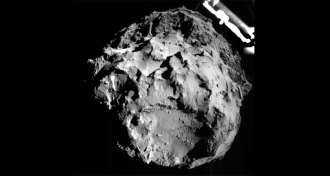 Astronomy
AstronomyRosetta mission lander set to explore surface of comet
The Rosetta spacecraft’s minifridge-sized lander Philae is now on comet 67P/Churyumov-Gerasimenko and is beginning to study its geology and chemistry.
-
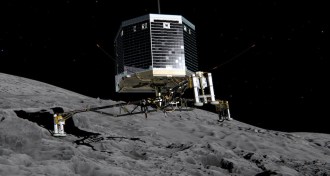 Planetary Science
Planetary SciencePhilae lander touches down on comet 67P
Rosetta’s lander Philae has reached the surface of comet 67P/Churyumov-Gerasimenko and is starting to do science.
-
 Astronomy
AstronomyPhilae lander is in free fall toward comet 67P
The Rosetta spacecraft has nudged its lander Philae off its back toward the surface of comet 67P/Churyumov-Gerasimenko.
-
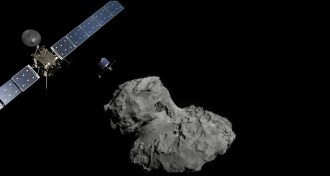 Planetary Science
Planetary SciencePhilae passes first go-no-go tests for comet landing
Philae and its mothership Rosetta are working through the final tests before scientists attempt to launch the lander toward the surface of comet 67P/Churyumov-Gerasimenko.
-
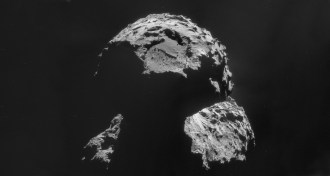 Astronomy
AstronomyRosetta’s countdown to comet landing has begun
Everything is on track for Rosetta mission scientists to attempt to set the Philae lander on the surface of comet 67P/Churyumov-Gerasimenko.
-
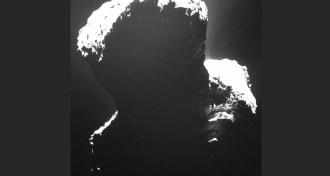 Planetary Science
Planetary ScienceRosetta prepares to let go of its comet lander
To date, everything is a go for scientists to attempt to land a robotic probe on a comet.
-
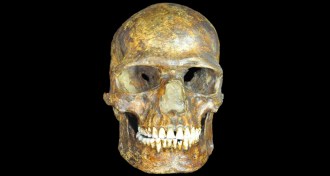 Genetics
GeneticsDNA from 37,000-year-old human hints at early European history
DNA from a roughly 37,000-year-old Homo sapiens skeleton supports recent findings about when ancient humans and Neandertals interbred.
-
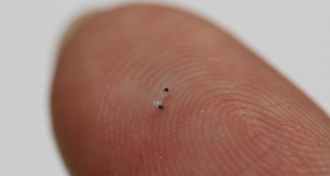 Tech
Tech‘Micro-scallop’ takes a stroke toward swimming in blood
A tiny device that looks like a scallop flaps its way through viscous fluids, something that has been a challenge in the past.
-
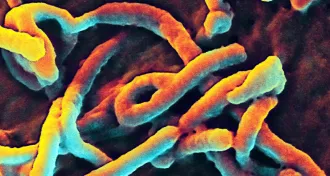 Life
LifeEbola virus edits its own genetic material
Both the Ebola and Marburg viruses edit their genetic material when infecting cells. The viruses may make proteins currently unknown to scientists.
-
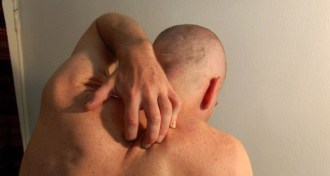 Neuroscience
NeuroscienceScratching releases serotonin, making you itch more
Scratching an itch releases serotonin in the brain, which can eventually make the itch sensation worse, a new study shows.
-
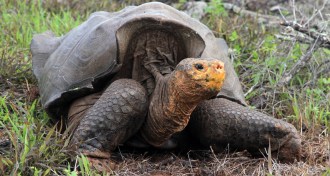 Life
LifeA little good news for giant tortoises in the Galapagos
The giant tortoise population on the Galapagos island of Española is on the rebound, but there are still concerns about other markers of conserving the endangered species.
-
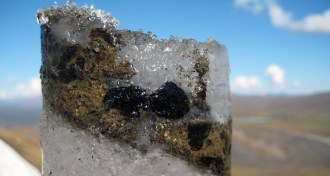 Microbes
MicrobesFrozen caribou feces offers look at virus evolution
Genetic material extracted from caribou poop gives hints about how viruses evolve.